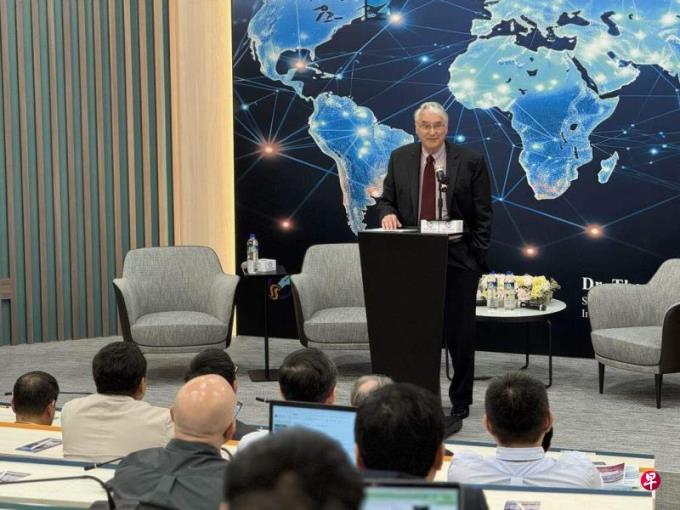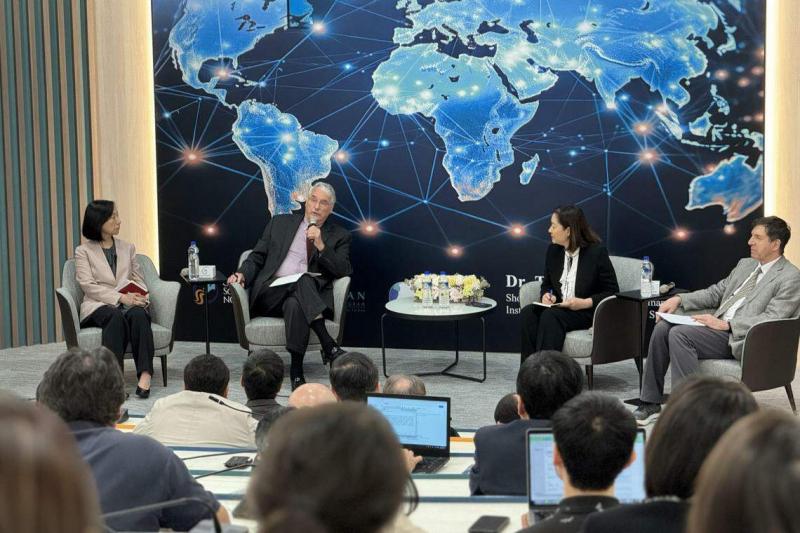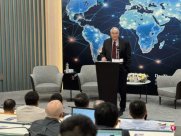
Thomas Fingar, Chairman of the National Intelligence Committee of the United States, was invited to give a special speech in Taipei on Thursday (June 6). During the period, I told how intelligence analyzed how to help decision makers formulate a policy closer to reality.Taking nuclear stability subjects as an example, China is constantly expanding the scale of nuclear weapons. In order to promote Beijing to sit down to negotiate, the United States needs to rely on intelligence analysis.
Feng Jiashi served as deputy director and chairman of the National Intelligence Committee from 2005 to 2008.After lifting the restrictions of senior officials in the United States, he was invited to visit Taiwan by the Taiwan International Think Tank Asia -Pacific Tough Research Foundation, the Academy of Social Sciences of the University of Political Sciences and the Ministry of Education of Taiwan, and held a special speech at the University of Political Science on Thursday.
Feng Jiashi uses his own experience to tell the role of national intelligence analysis in government decision -making.
He emphasized that the most critical indicator of judging the value of intelligence analysis is whether it is timely and whether the decision makers need help.
In the face of an increasingly clear international political pattern, Feng Jia believes that intelligence analysis is crucial to solving the challenges facing the world, and the intelligence community needs to cooperate with various interests at home and abroad."The reason why we face the challenge is precisely because these problems cannot be solved by any government alone; to reach cooperation, we need to know each other's intentions and needs."
Feng Jiashi takes nuclear stability subjects as an example. It means that the United States and Russia have successfully avoided nuclear destruction through information sharing and control mechanisms over the past 70 years.However, he said that it is worrying that China is constantly expanding the scale of nuclear weapons, but refuses to participate in military reserve control negotiations.
Therefore, he believes that the most important thing is to promote China to negotiate, and this is the role of intelligence analysis.
Feng Jiashi also emphasized that understanding the intention and needs of decision makers and various stakeholders are not only the only laws that should be followed by intelligence analysis, but also the contribution of decision -making in the intelligence community.

In the Q & A session, some audiences asked Feng Jia how to interpret the current China when they asked Feng Jia. If they focus on the Chinese officials with power concentration, it will be easier to interpret China.
Feng Jiashi said that he was quite disappointed with the current state of Beijing's discourse, but "simplified the problem into the rejuvenation of 'the rejuvenation of the big country' or the opposition between the policy and democracy 'is also a manifestation of laziness."
He admits that Chinese officials have indeed been the most powerful leader in China since Mao Zedong, but this cannot clarify the decision -making process of the Chinese government.He does not think that the Chinese government's decision -making driver is only for one person's personality.
Feng Jiashi pointed out that there are indeed more secret information within the intelligence agency."But in my opinion, in response to this kind of information, these information is not as good as rigorous thinking, restricting and policy priority, etc., which can be more helpful. And these contents canGet in interaction. "




